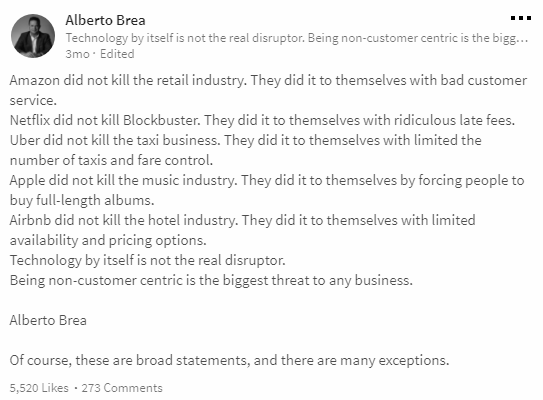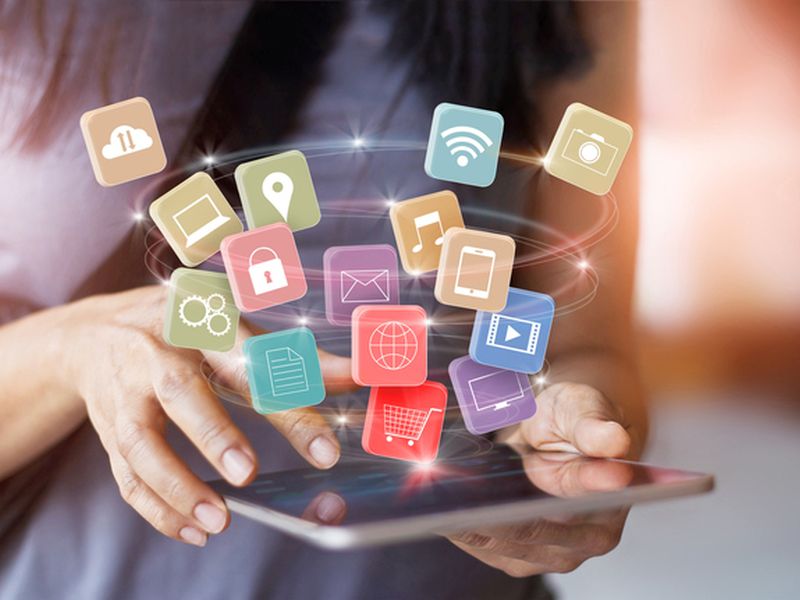While enjoying my Door Dash dinner delivery after my Uber had dropped me at the hotel, I came across a viral post on my LinkedIn Feed that struck me sideways:

Technology is not the real disruptor, failure to adopt to it is. For me personally, these apps have created efficiencies in my life that allow me to focus on the task at hand. For example when I travel for work, I no longer have to rent-a-car or take a cab because I use Uber. When I do drive, I use Waze which allows me not only to find the best route, but gauge the traffic and other road situations that may lie ahead. Ordering food on the road was a hassle before Door Dash. Now, I can look up all the restaurants and menus near my location and place the order right from the app. These are just a few example of how mobile applications have made my life a little easier.
The question becomes when we look at our patient experience programs, why do we resist adopting efficiency strategies that will allow us to focus more time on patient care? For example, most of the physician offices we have visited, either professionally or personally, have a paper intake process, requiring patients to show up 15 minutes or more prior to their appointment. The people who are unable to show up early to complete their paperwork often push the other appointments back, causing increased wait times and delays.
Another example where mobile engagement is beneficial is in chronic care management. These patients are seen at a certain frequency whether it be weekly, monthly, bi-annually or annually. During these visits, we spend a lot of time going through standard outcome measure tests and can’t always get to what is most important to the patient at that visit. It is always the thing that doesn't get discussed during a doctor's visit that leads to personal dissatisfaction, which in turn, may provoke a patient to drop a nastygram review on Facebook, Yelp or Google.
All of these issues are totally avoidable nowadays with every patient walking around with a super computer in their pocket. Isn’t it time that healthcare professionals harness the power of these devices and apply the same efficiencies that mobile apps have brought to other industries?
Wouldn’t it be nice if your physician check-in process was done ahead of time, like a mobile hotel app? Imagine how your overall health could improve if standard outcome measures were monitored and reported ahead of time through patient reported outcomes that you could do at home, so the focus of your appointment was on what mattered most to you?
In this new value-based economy, the healthcare organizations that adopt mobile engagement strategies will emerge as the Netflix, while those holding on to their late fees will fall by the wayside like Blockbuster. What kind of organization will you be?

